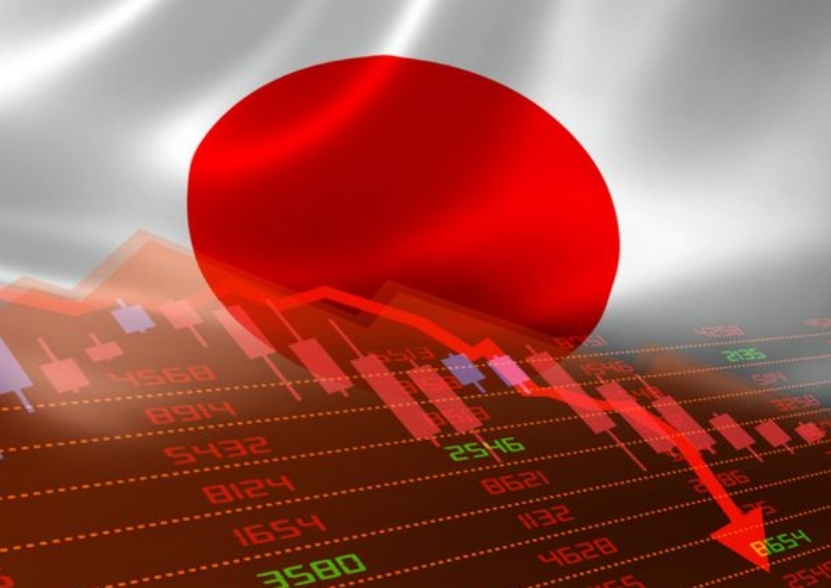
Recently, according to a survey, the number of corporate bankruptcies in Japan hit a record high in July. This is not just a string of cold figures piled up, it is more like a mirror, reflecting the deep difficulties and challenges of the Japanese economy, but also triggered our profound reflection on the complex causes behind the "new high".
In most people's perception, corporate bankruptcy is often closely associated with negative words such as poor management and market contraction, which is a nightmare that entrepreneurs do not want to touch. But at the moment, when this number is called a "new high", it seems to have a different meaning - a kind of data quantification, even slightly "achievement" illusion. On social media, many people joked: "It seems that even bankruptcy is pursuing KPIs." This seemingly absurd statement is actually a subtle mockery of the current economic situation, revealing the social perception of the complexity of economic problems.
Once one of the great economic powers, Japan is now facing unprecedented challenges. The number of bankruptcies reached a new high, which largely reflects the lag and weakness of policy adjustment. For a long time, although the Japanese government has no shortage of measures to stimulate the economy, but in the face of deep-seated problems such as globalization and demographic changes, these policies often seem inadequate and difficult to reach the root cause. As one commentator put it: "The spring breeze of policy always seems to blow away from those corners that need warmth the most."
On the other hand, the wave of bankruptcies in Japan has also exposed the rigidity of its industrial structure. Although the traditional manufacturing industry is still the pillar of the economy, in today's rapidly changing scientific and technological innovation, many enterprises have failed to transform and upgrade in time, and still cling to the old production mode and business model. This "warm water boiling frog" type of comfort, eventually led to their passivity and weakness in the market flood. As the old saying goes, "When The Times abandon you, you don't even say hello."
In addition, Japan's unique corporate culture and social values also contribute to the risk of corporate bankruptcy. Traditional systems such as lifetime employment and seniority sequence give employees a sense of stability, but also restrict the flexibility and innovation ability of enterprises. When market conditions change dramatically, these companies often get stuck because they lack the ability to respond quickly. At the same time, society's excessive criticism of failure also makes many entrepreneurs choose silence and escape when facing difficulties, rather than actively seeking solutions.
However, in this seemingly cynical discussion, we should also see the warning meaning behind it. The "new high" in the number of corporate bankruptcies is not only an intuitive reflection of economic difficulties, but also an opportunity to promote reform and promote transformation.
In the face of the new situation, the government should accelerate the pace of policy innovation, and introduce more accurate and effective support measures for the practical difficulties faced by enterprises. At the same time, we should strengthen cooperation with the international community to jointly meet the challenges brought by globalization and create a more stable and open business environment for enterprises.
The optimization and upgrading of industrial structure. Enterprises themselves should also actively seek the road of transformation and upgrading, increase investment in scientific and technological innovation, and enhance product competitiveness. At the same time, the internal management structure is optimized to improve operational efficiency to adapt to rapidly changing market demands.
More importantly, the whole society should establish a correct view of failure and innovation. Encourage entrepreneurs to dare to try and fail, provide necessary help and support for the losers, and make innovation an important force to promote social progress.
Overall, the number of corporate bankruptcies in Japan hit a new high in July, which is not only a data point jump, but also a profound reflection on the current state of the Japanese economy. We should be vigilant, always pay attention to avoid its harm.

Driven by the Trump administration's push to relax financial regulations and the recovery of investment banking business, the market value of the six major banks in the United States has cumulatively increased by approximately 600 billion US dollars by 2025.
Driven by the Trump administration's push to relax financia…
On Christmas evening, U.S. President Trump posted on social…
According to multiple foreign media reports, the recent fin…
The middle class, once regarded as the cornerstone of Ameri…
On December 19th local time, the US military launched a lar…
The Boxing Day sunshine should have cast a false glow of pr…